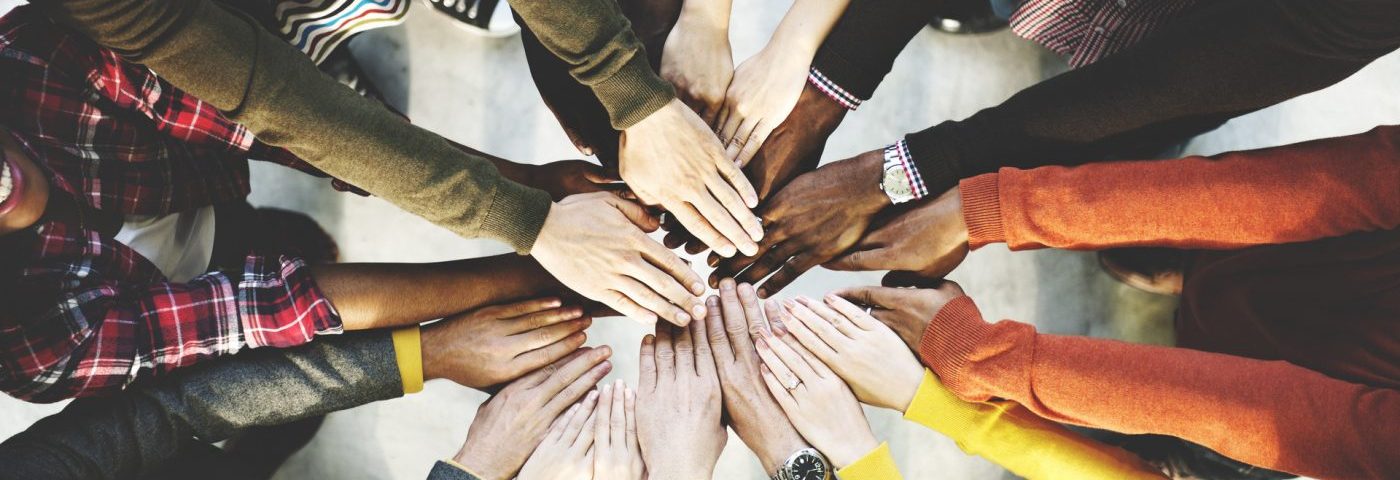We’ve Adapted Before, and We’ll Adapt Again

Since my husband was diagnosed with ALS a decade ago, we’ve adapted to this difficult life in ways I never would have expected.
After leaving rural Michigan for college in Chicago, and then living in Milwaukee, I didn’t think I would end up living in a handicap-accessible house across the field from my childhood home. Before my husband, Todd, was diagnosed, I only dreamed of being a writer. I didn’t envision a life spent at home caring for my husband as we collaborated on creative projects, including our memoir, a children’s book, and my novels.
Early in our marriage, we tried different mattresses so the motion transfer of him tossing and turning wouldn’t wake me. I never imagined he would end up paralyzed, unable to move in bed at all, and needing nighttime caregivers to turn him every hour while I slept in another room.
We’ve adapted before, so we can adapt again to this even more difficult life under a pandemic.
My daily routine has been altered with the closing of my gym. Exercising at the fitness center was my primary method to practice self-care in the midst of ongoing stress. I’d spend 30 minutes on the elliptical machine and use strength-training machines while I listened to podcasts or audiobooks. When I was done working out, I’d pour myself a cup of tea to drink on the way home. As stressed as I might have been going to the gym, I always felt better when I returned home to care for Todd.
When my gym closed, I worried my back pain would return and my stress level would spiral out of control. But my $100 mini-elliptical machine has worked in a pinch, and it has given me more time with Todd to watch Netflix while I exercise. My mom, the kids, and I have spent time outside, cross-country skiing on beautiful trails. (Yes, we still have snow in the Keweenaw.)
We’ve had more time with the kids now that school has been canceled. Due to social distancing requirements, we’re forced to slow down. Usually, I find myself being taxi-mom, running the kids to and from school, and to lessons, activities, and friends’ houses. It was a lot to juggle in addition to caregiving, but I did it because I wanted to give the kids as normal of a childhood as we could manage. Now, all their friends are stuck at home, so our kids aren’t feeling left out. This is everyone’s normal.
I appreciate getting additional sleep and not having to wake early to get them to school. After a late breakfast, we stay busy with learning activities, and we try to schedule something fun for every day, such as a board game, a bike ride, a movie, and filming a demonstration video of our overhead lift for our ALS 411 YouTube channel. (OK, maybe zip-lining in the bedroom is not part of a normal childhood.)
As the world adapts to life at home and an abundance of concern about spreading germs — a life already familiar to those of us living with ALS — new and innovative technologies may make life easier for us in the long run.
I’m surprised at how effective videoconferencing can be. Our daughter has had dance lessons via Zoom. Our church has livestreamed the Sunday worship service. And I’ve attended a virtual meetup with fellow ALS caregivers. Perhaps there will be even more innovation that improves the quality of life for those who are stuck at home.
I hope there will be cultural shifts that will make it safer for people whose health is compromised. Maybe our cultural norm of shaking hands will give way to a quick wave or a friendly verbal greeting. Maybe people who are sick will stay home or wear a mask if they need to go out. After our current crisis is over, maybe life will be safer for those with compromised health.
I know other families dealing with ALS are having a harder time, especially those who’ve lost caregiving help. If that becomes our reality, or if we get COVID-19, then I’ll be right there with those who are stressed and overwhelmed. For now though, we have a bit of a breather, perhaps a lull before the storm.
We’ve done our best to prepare. We have the equipment and prescriptions we use to get Todd through bad colds. These include a nebulizer, a cough assist machine, a suction machine, and cold medications. Beyond that, all we can do is maintain social distance and wait to see what happens. We can do our best to prepare, but still many people will get sick, and too many people will die. Whatever happens, one thing we have going for us is our ability to adapt. With this ever-progressing disease, we’ve had a lot of practice.
***
Note: ALS News Today is strictly a news and information website about the disease. It does not provide medical advice, diagnosis, or treatment. This content is not intended to be a substitute for professional medical advice, diagnosis, or treatment. Always seek the advice of your physician or other qualified health provider with any questions you may have regarding a medical condition. Never disregard professional medical advice or delay in seeking it because of something you have read on this website. The opinions expressed in this column are not those of ALS News Today or its parent company, Bionews Services, and are intended to spark discussion about issues pertaining to ALS.







Leave a comment
Fill in the required fields to post. Your email address will not be published.